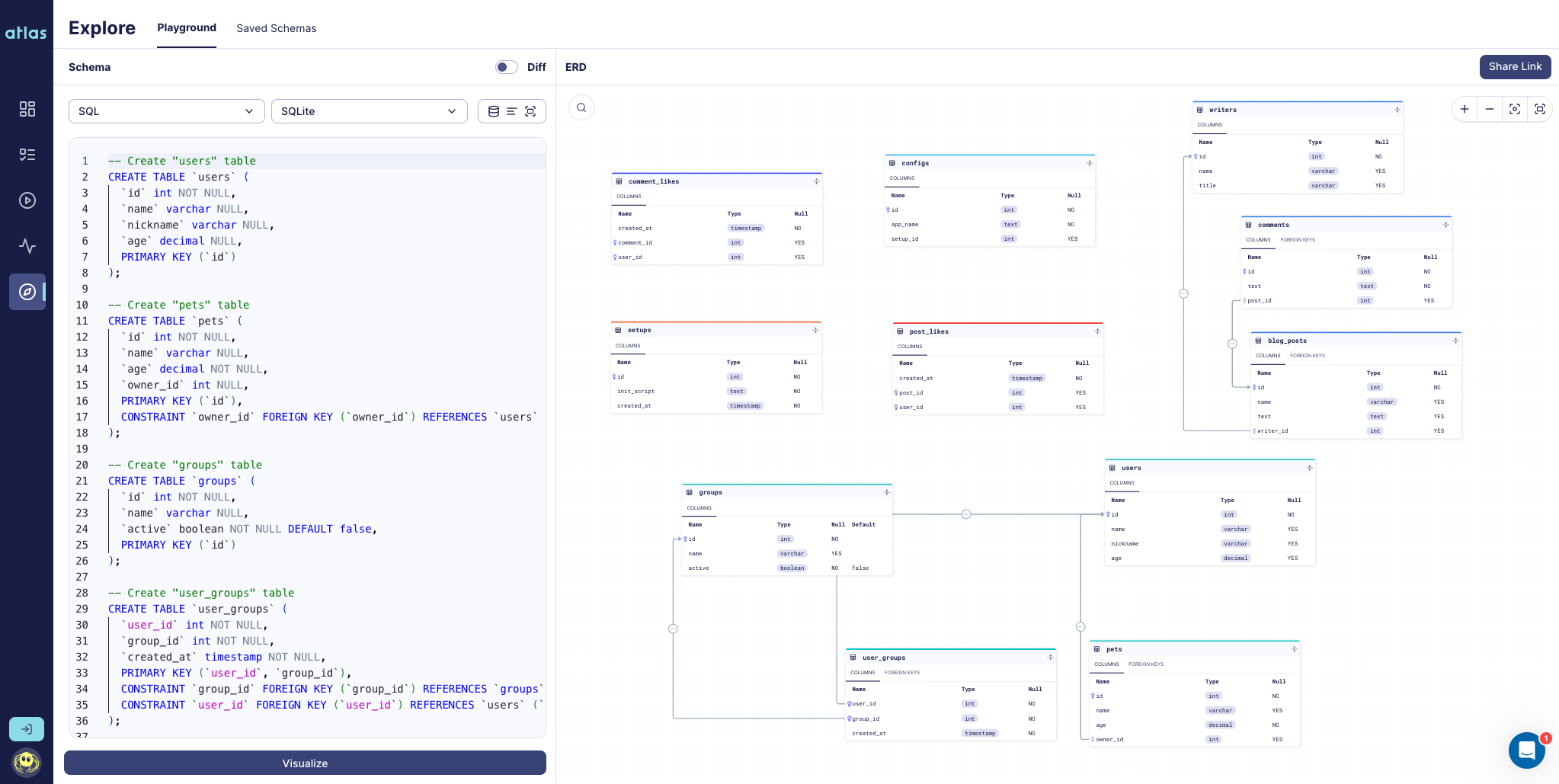https://github.com/ariga/atlas-provider-django
Django provider for atlasgo.io
https://github.com/ariga/atlas-provider-django
Last synced: 2 months ago
JSON representation
Django provider for atlasgo.io
- Host: GitHub
- URL: https://github.com/ariga/atlas-provider-django
- Owner: ariga
- License: apache-2.0
- Created: 2024-01-18T08:39:28.000Z (over 1 year ago)
- Default Branch: master
- Last Pushed: 2025-03-16T14:00:38.000Z (3 months ago)
- Last Synced: 2025-04-11T23:15:25.687Z (2 months ago)
- Language: Python
- Size: 59.6 KB
- Stars: 7
- Watchers: 7
- Forks: 1
- Open Issues: 2
-
Metadata Files:
- Readme: README.md
- License: LICENSE
Awesome Lists containing this project
README
# atlas-provider-django
Load [Django](https://www.djangoproject.com/) models into an [Atlas](https://atlasgo.io) project.
### Use-cases
1. **Declarative migrations** - use a Terraform-like `atlas schema apply --env django` to apply your Django schema to the database.
2. **Automatic migration planning** - use `atlas migrate diff --env django` to automatically plan a migration from the current database version to the Django schema.
### Installation
Install Atlas for macOS or Linux by running:
```bash
curl -sSf https://atlasgo.sh | sh
```
See [atlasgo.io](https://atlasgo.io/getting-started#installation) for more installation options.
Install the provider by running:
```bash
pip install atlas-provider-django
```
### Configuration
Add the provider to your Django project's `INSTALLED_APPS` in `settings.py`:
```python
INSTALLED_APPS = [
...,
'atlas_provider_django',
...
]
```
In your project directory, create a new file named `atlas.hcl` with the following contents:
```hcl
data "external_schema" "django" {
program = [
"python",
"manage.py",
"atlas-provider-django",
"--dialect", "mysql" // mariadb | postgresql | sqlite | mssql
// if you want to only load a subset of your app models, you can specify the apps by adding
// "--apps", "app1", "app2", "app3"
]
}
env "django" {
src = data.external_schema.django.url
dev = "docker://mysql/8/dev"
migration {
dir = "file://migrations"
}
format {
migrate {
diff = "{{ sql . \" \" }}"
}
}
}
```
### Usage
### Inspect
You can use the `atlas schema inspect` command to visualize your Django schema in Atlas Cloud.
```bash
atlas schema inspect -w --env django --url env://src
```

#### Apply
You can use the `atlas schema apply` command to plan and apply a migration of your database to your current Django schema.
This works by inspecting the target database and comparing it to the Django Apps models and creating a migration plan.
Atlas will prompt you to confirm the migration plan before applying it to the database.
```bash
atlas schema apply --env django -u "mysql://root:password@localhost:3306/mydb"
```
Where the `-u` flag accepts the [URL](https://atlasgo.io/concepts/url) to the
target database.
#### Diff
Atlas supports a [versioned migrations](https://atlasgo.io/concepts/declarative-vs-versioned#versioned-migrations)
workflow, where each change to the database is versioned and recorded in a migration file. You can use the
`atlas migrate diff` command to automatically generate a migration file that will migrate the database
from its latest revision to the current Django schema.
```bash
atlas migrate diff --env django
````
### Supported Databases
The provider supports the following databases:
* MySQL
* MariaDB
* PostgreSQL
* SQLite
* Microsoft SQL Server
### Issues
Please report any issues or feature requests in the [ariga/atlas](https://github.com/ariga/atlas/issues) repository.
### License
This project is licensed under the [Apache License 2.0](LICENSE).